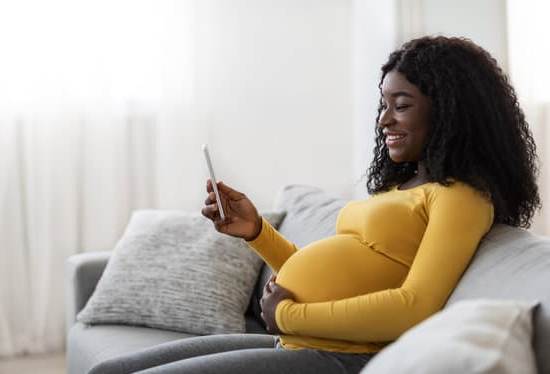Pregnancy symptoms can vary from woman to woman, and it is crucial to know when to expect them in order to recognize the signs of early pregnancy. Understanding the timing of these symptoms can also help individuals confirm a pregnancy and seek appropriate care. This article will provide an overview of pregnancy symptoms, their typical timing, factors that can affect their onset, common misconceptions, and how to deal with them.
Pregnancy symptoms are physical or emotional changes experienced by a woman as a result of her body’s response to the hormonal changes associated with pregnancy. Knowing when to expect these signs is important for those trying to conceive or those who suspect they may be pregnant. By understanding the typical timing of pregnancy symptoms, individuals can better recognize and confirm early signs of pregnancy.
The onset of pregnancy symptoms varies from woman to woman, with some experiencing them soon after conception while others may not notice any until later in their first trimester. Factors such as age, hormonal levels, overall health, and lifestyle can affect when these symptoms start showing up.
Furthermore, there are common misconceptions about when pregnancy symptoms typically begin, such as confusing them with premenstrual syndrome (PMS) or assuming that they always start immediately after conception. Understanding the truth about these misconceptions is essential for accurate recognition and confirmation of early pregnancy symptoms.
Early Signs of Pregnancy
Pregnancy symptoms can vary from woman to woman, but there are some early signs that are commonly experienced. One of the most well-known early signs of pregnancy is a missed period. This occurs when the fertilized egg attaches itself to the uterus, causing a halt in the menstrual cycle. Additionally, tender or swollen breasts are also common in the early stages of pregnancy due to hormonal changes.
Another early sign of pregnancy is nausea and vomiting, often referred to as morning sickness. This can start as early as two weeks after conception and typically eases up after the first trimester. Fatigue is also a common symptom in early pregnancy, as the body works hard to nourish the growing embryo. Increased urination is another notable symptom, caused by hormonal changes and the expanding uterus putting pressure on the bladder.
When do you get pregnancy symptoms? The timing of these symptoms can vary for each individual due to factors such as age, hormonal levels, and overall health. Some women may experience symptoms as early as a few days after conception, while others may not notice anything until several weeks into their pregnancy. It’s important to note that there is a difference between early and late pregnancy symptoms, with different physical and emotional changes occurring at each stage.
Understanding the timing of pregnancy symptoms can be crucial for those who are trying to conceive or those who may have concerns about being pregnant. It’s important to be aware of these signs in order to take appropriate actions such as seeking medical advice or taking a pregnancy test at the right time for accurate results.
Timing of Pregnancy Symptoms
When it comes to pregnancy, many women eagerly anticipate the onset of pregnancy symptoms as a sign that they may be expecting. Understanding when to expect these symptoms can help individuals recognize changes in their body and seek appropriate medical care or support. It’s important to note that every woman’s pregnancy journey is unique, and the timing of pregnancy symptoms can vary from person to person.
Here are some typical signs that may indicate the start of pregnancy symptoms:
- Missed period: This is often one of the earliest indicators of pregnancy.
- Tender breasts: Hormonal changes can lead to breast tenderness or swelling.
- Nausea and vomiting: Often referred to as morning sickness, these symptoms can occur at any time of day.
- Fatigue: Feeling extremely tired or needing more rest than usual.
- Increased urination: Pregnant women may experience a frequent need to urinate due to hormonal changes and increased blood flow to the kidneys.
While these are common early signs of pregnancy, it’s important to remember that individual variations exist. Some women may experience these symptoms earlier or later than others. Additionally, the timing of symptoms can differ between first-time pregnancies and subsequent pregnancies.
Factors such as age, hormonal levels, overall health, and lifestyle can also affect when pregnancy symptoms begin. Younger women may experience symptoms sooner due to higher levels of certain hormones, while older women may notice delays in symptom onset. Similarly, individuals with underlying health conditions or those who lead particularly active or sedentary lifestyles may have different experiences with pregnancy symptoms.
Understanding the timing of pregnancy symptoms is crucial for accurately interpreting bodily changes and seeking necessary healthcare services. Knowing when to expect these symptoms can provide individuals with a sense of preparedness and enable them to make informed decisions about their reproductive health.
Factors Affecting the Onset of Pregnancy Symptoms
Pregnancy symptoms can vary greatly from woman to woman, but they typically start to appear within the first few weeks after conception. For most women, the initial signs of pregnancy begin around 4-6 weeks after the last menstrual period. However, some may experience symptoms earlier, while others may not notice any changes until later in the first trimester. It’s important to note that these timeframes are just general guidelines and individual variations are common.
Several factors can have an impact on when pregnancy symptoms start to manifest. Age plays a role, with younger women tending to notice symptoms earlier than older women. Hormonal levels also influence the onset of pregnancy symptoms, as do overall health and lifestyle factors. Women who are more attuned to their bodies may recognize subtle changes sooner than those who are less aware of potential pregnancy signs.
It’s important for women to be mindful of their bodies and pay attention to any changes they experience, especially if they have been trying to conceive. Understanding the typical timing of pregnancy symptoms and how individual factors can affect this timeline can help women recognize early signs of pregnancy more effectively.
| Factors Affecting Onset | Impact |
|---|---|
| Age | Younger women tend to experience symptoms earlier than older women. |
| Hormonal Levels | Hormonal fluctuations play a significant role in when symptoms appear. |
| Overall Health and Lifestyle | Physical health and lifestyle choices can influence the onset of pregnancy symptoms. |
Common Misconceptions About Pregnancy Symptoms
Many women experience confusion when trying to differentiate between early pregnancy symptoms and premenstrual syndrome (PMS) symptoms. The similarities in some of these symptoms can lead to misconceptions about what is actually happening in the body. It is important to understand the differences in order to accurately recognize signs of pregnancy.
One common misconception is that pregnancy symptoms always start immediately after conception. In reality, it may take several days or even weeks for some women to notice any changes in their bodies. Additionally, the timing of symptoms can vary from person to person, making it crucial not to rely solely on a specific timeline.
To avoid confusing PMS symptoms with those of early pregnancy, it’s helpful to be aware of the typical timing and duration of each set of symptoms. By understanding the unique characteristics and onset of both PMS and early pregnancy symptoms, women can better identify what their bodies are experiencing.
Misconceptions about the timeline and nature of pregnancy symptoms can also lead to anxiety or confusion for those trying to conceive. When planning for a baby, it is essential to have accurate information about when different signs may appear, so as not to jump to conclusions too quickly.
Pregnancy Test and Confirmation of Symptoms
Timing of Taking a Pregnancy Test
When it comes to confirming pregnancy symptoms, timing is crucial. While some women may be eager to take a pregnancy test as soon as they experience early signs of pregnancy, it is important to wait until at least the first day of a missed period.
This is because taking a test too early can result in a false negative, as the levels of hCG (the hormone detected in pregnancy tests) may not be high enough to be detected. It is also recommended to take the test in the morning when your urine is more concentrated and hCG levels are higher.
Accuracy of Home Pregnancy Tests
Home pregnancy tests have become highly accurate, especially when taken on or after the first day of a missed period. However, it’s important to follow the instructions carefully and use the test within its expiration date for best results. In some cases, particularly if there is uncertainty about the results or if symptoms persist despite negative tests, seeking confirmation from a healthcare professional through blood tests may be necessary.
Pregnancy Confirmation and Next Steps
Upon receiving a positive result from a home pregnancy test or through healthcare provider confirmation, it’s essential to schedule an appointment with an obstetrician or midwife for prenatal care. Early prenatal care plays a crucial role in monitoring the health of both the mother and the developing fetus. Additionally, healthcare providers can offer guidance on lifestyle changes, nutritional needs, and provide support for managing early pregnancy symptoms.
Dealing With Early Pregnancy Symptoms
Experiencing the early symptoms of pregnancy can be a joyful but challenging time for many women. Understanding when these symptoms typically start and how to manage them can help expectant mothers navigate this stage with greater ease.
When Do Pregnancy Symptoms Typically Start?
Pregnancy symptoms can vary from woman to woman, but they usually begin around 6-8 weeks after conception. This means that for most women, the first signs of pregnancy may not appear until a few weeks after a missed period. However, some women may experience symptoms as early as a week after conception, while others may not notice any notable changes until later on in their pregnancy.
Individual Variations in Timing of Symptoms
It’s important to note that every woman’s body is unique, and the timing of pregnancy symptoms can depend on various factors such as hormonal levels, overall health, and lifestyle. Additionally, age can also play a role in when these symptoms appear. Younger women may experience symptoms earlier due to their reproductive systems being more active, while older women may take longer to notice these signs due to hormonal changes related to aging.
Difference Between Early and Late Pregnancy Symptoms
Early pregnancy symptoms such as nausea, fatigue, and breast tenderness are often the first indicators of pregnancy. As the pregnancy progresses, other symptoms like fetal movement and an expanding belly become noticeable. Understanding the distinction between early and late pregnancy symptoms can help women prepare for the changes they will experience throughout their journey to motherhood.
As a result of these individual variations and unique experiences with early pregnancy symptoms, it’s essential for women to approach this time with patience and self-care. By recognizing when to expect these changes and seeking medical advice when needed, expectant mothers can better cope with the physical and emotional challenges of early pregnancy.
Conclusion
In conclusion, understanding when to expect pregnancy symptoms is essential for women who are trying to conceive or may have concerns about potential pregnancy. The early signs of pregnancy, such as a missed period, tender breasts, nausea, and fatigue, typically begin to appear within the first few weeks after conception. However, it’s important to note that individual variations exist in the timing of these symptoms, and some women may not experience them until later in their pregnancy.
Factors such as age, hormonal levels, and overall health can also affect when pregnancy symptoms start to manifest. Additionally, it’s crucial for women to be aware of common misconceptions about pregnancy symptoms, such as confusing them with PMS or believing that they always occur immediately after conception. Taking a pregnancy test at the proper time and seeking medical advice can help confirm the presence of pregnancy symptoms and provide necessary support and guidance.
In order to cope with early pregnancy symptoms like nausea and fatigue, women are encouraged to make lifestyle adjustments and seek assistance when needed. Being informed about when to expect pregnancy symptoms can alleviate anxiety and aid in making informed decisions regarding healthcare and prenatal care. Ultimately, having knowledge about the timing of pregnancy symptoms plays a vital role in the journey toward motherhood.
Frequently Asked Questions
How Soon Can You Get Symptoms of Pregnancy?
Symptoms of pregnancy can start as early as a few days after conception, but for most women, they become noticeable around the time of their missed period. Some common early symptoms include fatigue, breast tenderness, nausea, and frequent urination.
What Are Symptoms of Pregnancy at 1 Week?
At one week pregnant, the symptoms may not be very noticeable yet since it is still very early in the pregnancy. Some women may experience light spotting, mild cramping, or an increased sense of smell at this stage. However, many women may not have any noticeable symptoms at all during the first week of pregnancy.
How Soon Can You Know if You Are Pregnant?
You can typically know if you are pregnant by taking a home pregnancy test about a week after your missed period. These tests work by detecting the hormone hCG in your urine, which is produced by the placenta shortly after a fertilized egg attaches to the uterine lining.
Some women may also experience early signs like implantation bleeding or changes in their usual menstrual cycle that could prompt them to suspect they are pregnant before taking a test.

Welcome to my fertility blog. This is a space where I will be sharing my experiences as I navigate through the world of fertility treatments, as well as provide information and resources about fertility and pregnancy.





